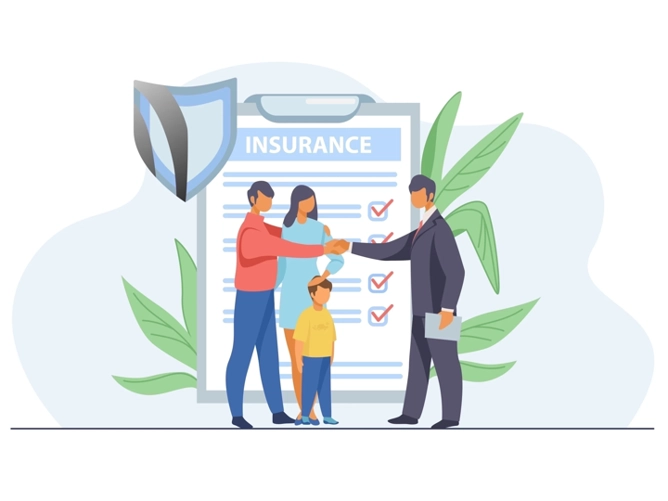
Budget Travel Tips for Expats in Germany
Budget Travel Tips for Expats in Germany
Budget Travelling Within Germany: The Ultimate Guide for Expats
Introduction
Ever found yourself gazing out of a train window, wishing you could explore more of Germany without blowing your monthly budget? As an expat, you’re likely juggling paperwork, adapting to a new culture, and searching for cost-effective ways to experience all that Germany has to offer. The idea of budget travelling within Germany may sound daunting—especially when myths about “expensive Europe” persist—but in reality, exploring this country can be both affordable and deeply rewarding.
Here at liveingermany.de, we’ve guided thousands of newcomers and expats through Germany’s intricate systems—giving practical, trustworthy, and friendly advice on everything from public transport hacks to affordable accommodation finds. This guide distills our expertise and recent research into a clear, step-by-step strategy for budget travelling within Germany, tailor-made for expats and newcomers like you.
Expat Challenges and Context
Relocating to Germany sparks a thirst for adventure, but practical concerns often get in the way. For many expats, the hurdles include:
- Navigating unfamiliar transport networks.
- Deciphering the difference between local tickets, regional passes, and long-distance trains.
- Finding affordable places to sleep in cities with sky-high hotel prices.
- Managing daily expenses when every euro spent is a reminder of tight budgets at home.
Take Marta, a young professional from Spain, for example. When she arrived in Munich, weekend trips to the countryside seemed out of reach. Expensive train tickets and confusion about city passes made her put travel plans on the back burner. But with a few insider tips—like the Deutschlandticket and city travel cards—her off-days became a series of affordable, memorable adventures.
The truth: Budget travelling is not only possible in Germany; it’s part of the culture. The backbone of Germany’s efficiency—its public transport, wide network of hostels, abundance of free activities, and affordable food options—ensures every expat can discover the country without breaking the bank.
Budget Travel in Germany: Step-by-Step Guidance for Expats
1. Harness Germany’s Public Transport Superpowers
Germany’s public transport is renowned for its reliability, coverage, and ease of use—especially once you know the secrets:
Regional and City Travel
- Deutschlandticket: For €58/month, enjoy unlimited regional trains, S-Bahn, U-Bahn, trams, and buses across Germany. This pass is a no-brainer for expats and frequent travelers, enabling city-hopping or daily commutes without stress. (Source: Studying in Germany)
- Local Tickets: Short trips within a city cost around €2–3. Save even more with daily (from €10.60 in Berlin) or multi-day passes (such as the Berlin WelcomeCard, 48 hours for €26.90).
- Intercity Budget Options: While high-speed ICE trains are pricey, FlixBus and regional trains offer affordable alternatives. Remember, Deutschlandticket does not cover ICE/IC/EC routes.
Last-Mile Mobility
- Bikes & E-scooters: Sharing apps like Tier, Lime, and Share Now make urban exploration affordable and flexible.
- Planning Tools: Use the DB Navigator and BVG Fahrinfo apps to plan every journey efficiently.
2. Affordable Accommodation Choices
Germany offers a range of accommodation styles for every budget:
- Hostels: Dorm beds (€15–35/night) can be found even in the most expensive cities, perfect for social travelers.
- Budget Hotels: Expect to pay €70–120/night for a basic double. Check out bundled tour packages (from €110/day, including meals and basic transport) for easy planning.
- Guesthouses & Short-term Rentals: In smaller towns, options like Airbnb and Booking.com offer private rooms and apartments that are often cheaper and cozier than standard hotels.
3. Managing Daily Expenses: Food & Fun for Less
Eating Like a Local (and Spending Little)
- Breakfast/Lunch: Cafés: €6–12. Dinner at mid-range spots: €15–30.
- Cheap Eats: Doner, currywurst, bakeries, and supermarket deli counters deliver hearty meals for just a few euros.
- Cooking at Home: Supermarkets like Aldi, Lidl, Penny, and Rewe offer quality produce and essentials on a budget. Cooking for yourself or using hostel kitchens makes a big difference—perfect for longer trips.
Free and Low-cost Fun
- Top Sights for Free: Many of Germany’s best parks, natural wonders, and architectural gems are open to all. City festivals and public events (especially in Berlin, Hamburg, and Munich) pack the calendar with free entertainment.
- Culture at a Discount: Museums often have entry fees from €8–19. Invest in city passes (Berlin WelcomeCard, Munich Card) to bundle entrance and public transport for extra savings.
4. What’s an Average Budget Look Like?
- Backpacker: €70–95/day (hostel, public transport, cheap meals, free sights).
- Midrange: €150–200/day (private room, some restaurant meals, paid attractions).
- Upscale: €400+/day for luxury seekers. (Sources: GetYourGuide Germany on a Budget, Nomadic Matt Germany Guide)
5. Ways to Save Even More
- Travel Off-Peak: Avoid peak holiday times for lower rates and smaller crowds.
- Picnic in Parks: Pick up local produce and enjoy Germany’s exceptional city parks (from Englischer Garten in Munich to Tiergarten in Berlin).
- Explore Nature: Go hiking, cycling, or swimming—in places like Saxon Switzerland, the Moselle Valley, or Bavarian lakes—all for free.
- Check Free Event Listings: Every city has free concerts, exhibitions, and outdoor cinemas, especially in summer.
- Student & Senior Discounts: Always ask for reduced rates—they’re common and significant.
6. Useful Tools for Expats & Travelers
- Apps: DB Navigator and BVG Fahrinfo for local and regional travel. Bike/e-scooter apps for city mobility.
- Tour Packages: Organized group tours can be cost-effective, hassle-free ways to see the highlights and meet new friends. (Check: TourRadar Budget Germany)
Practical Tips for Expats
Quick Hacks for Effortless Budget Travel
- Snag a Deutschlandticket early, especially if you plan more than two trips a month—it pays for itself quickly.
- Cook at home or use hostel/shared apartment kitchens to keep meal costs low and try out German supermarket favorites.
- Mix and match free and paid experiences: Enjoy parks, outdoor architecture, and markets alongside must-see museums or guided tours.
- Have you experienced sticker shock in a German café or on a train ride? Pause and research discount cards or multi-ticket options before your next journey.
Need a dedicated, English-friendly bank account as you explore Germany? Open your account with n26—smart digital banking designed for expats and travelers. Learn more.
(Affiliate link – we may earn a commission at no extra cost to you.)
Why Trust liveingermany.de? Our Mission and Expertise
At liveingermany.de, our guides are crafted by expats and locals who’ve walked in your shoes. We know the struggles—navigating bureaucracy, puzzling over train routes, or stretching every euro—because we’ve been there ourselves. Our mission is to transform frustration into freedom, equipping you with proven, practical strategies for living and travelling in Germany.
Trusted by thousands of expats each year, we offer:
- Comprehensive guides (like this one!) with up-to-date facts and actionable advice.
- Free checklists for essential tasks—like registration, finding rentals, and insurance.
- An expat community that answers your questions, no matter how niche.
If you found this guide useful, check out our other resources on local services, from health insurance to German SIM cards.
Final Thoughts
By making strategic use of Germany’s infrastructure, transportation passes, and wealth of free experiences, expats can open a world of discovery—without overspending or sacrificing comfort. No matter your budget, there’s a version of German travel that’s just right for you.
Looking for affordable long-distance data or need to stay connected while exploring?
Try Lebara—flexible, affordable SIM options in English, made for travelers and expats. Get started.
(Affiliate link – we may earn a commission at no extra cost to you.)
Note: All advice and prices up to date as of 2025. For further detail, explore official links: GetYourGuide, Studying-in-Germany.org, Nomadic Matt, TourRadar.
Frequently Asked Questions (FAQs)
What is Budget Travelling Within Germany?
Budget travelling within Germany means exploring the country’s cities and regions using affordable transport options, low-cost accommodation, and prioritizing free or discounted attractions and experiences. It is tailored to expats, students, and anyone keen on maximizing travel for less.
How Can I Get Started with Budget Travelling Within Germany?
Start by identifying your main destinations and travel dates. Invest in a Deutschlandticket for unlimited monthly regional travel. Book hostels, short-term apartments, or budget hotels in advance. Use apps to plan journeys efficiently, and explore local supermarkets to save on food expenses.
Is Budget Travelling Within Germany Available for Expats?
Absolutely. The transport discounts, affordable housing options, and city passes highlighted in this guide are available to residents and expats alike—no special status required. Just make sure to have the relevant ID (such as a student card or proof of age) to access some discounts.

Jibran Shahid
Hi, I am Jibran, your fellow expat living in Germany since 2014. With over 10 years of personal and professional experience navigating life as a foreigner, I am dedicated to providing well-researched and practical guides to help you settle and thrive in Germany. Whether you are looking for advice on bureaucracy, accommodation, jobs, or cultural integration, I have got you covered with tips and insights tailored specifically for expats. Join me on my journey as I share valuable information to make your life in Germany easier and more enjoyable.


![Best Apps to Learn German [Free + Paid]](https://liveingermany.de/images/best-app-to-learn-german/best-top-free-and-paid-learn-german-app-with-pros-and-cons.svg.webp-668w.webp)


